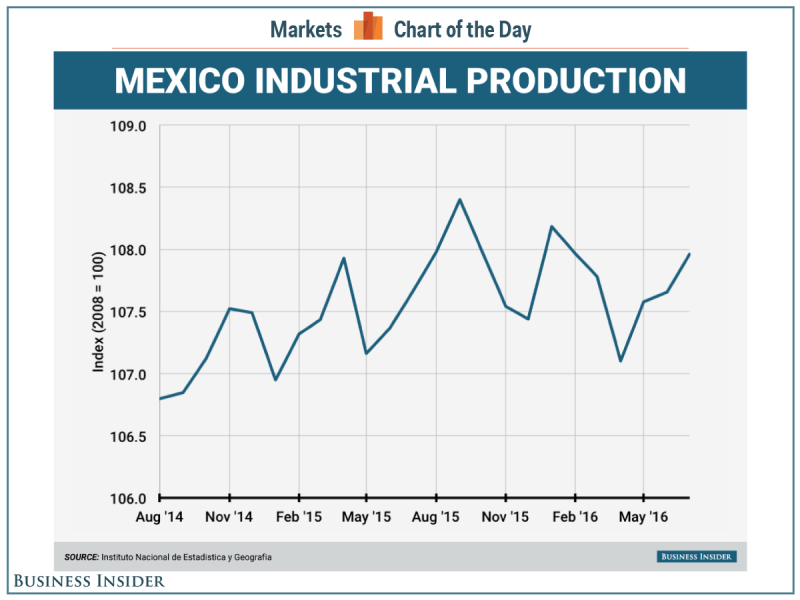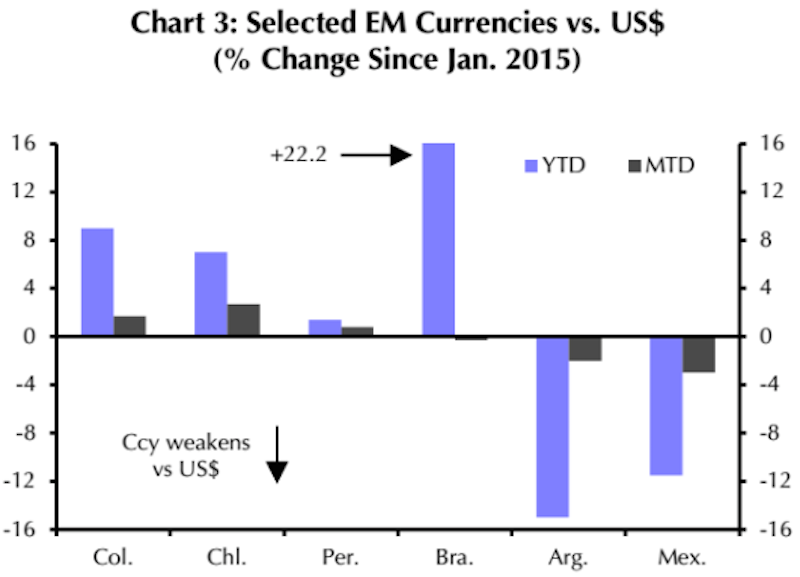The Mexican peso has become the most talked-about currency in the foreign-exchange market in recent days, as the US presidential race between Donald Trump and Hillary Clinton tightened up.
Trump’s tough talk on Mexico in terms of both trade and immigration has caused the peso to tumble as much as 8.7% since the middle of August to as low as 19.8772 to the dollar. The losses accelerated as he gained ground in national polls.
Following Monday night’s debate between the two candidates, traders scooped up pesos as it appeared Clinton got the best of Trump. There has been a lot of talk recently that the Mexican peso is a good proxy for who is going to win the election.
However, in a note to clients on Wednesday, the Capital Economics team of Neil Shearing, Edward Glossop, and Adam Collins note the peso was still lagging its regional counterparts well before Trump’s rise in the polls.
“Since January 2015, the peso has weakened by more than any other major EM currency.” (We should note that the one exception is the Argentine peso, which has been under pressure because of the country’s inflation)
And while the team acknowledges Trump might be having some impact, it argues there are two much more important reasons for the pesos' struggles: problems at state-owned oil giant Pemex and weak productivity growth.
Back in March, Pemex CEO José González Anaya told investors the company is facing "short-term financial difficulties" after reporting a $9.3 billion loss in the fourth quarter of 2015, making its full-year loss to a mind-blowing $32 billion. According to CFO Juan Pablo Newman, the company is looking to "stabilize debt growth" in the coming year and is expected to announce a debt-management deal in the coming days.
Additionally, the analysts say Mexico's "chronically weak productivity growth" is also to blame for the weakness in the peso. Mexico's industrial production has stagnated since early 2015.

Capital Economics forecasts the peso will end 2016 at 18 to the dollar, which is better than the current level of 19.40. That differs from HSBC's FX team, which in a note sent out to clients on Wednesday said a bearish scenario could see the currency tumble to a low of 22.0000 to the dollar.
On Thursday, the Bank of Mexico hiked its benchmark interest rate 50 basis points to 4.75%, as expected. As of 2:36 p.m. ET, the Mexican peso was little changed at 19.3644 per dollar.

